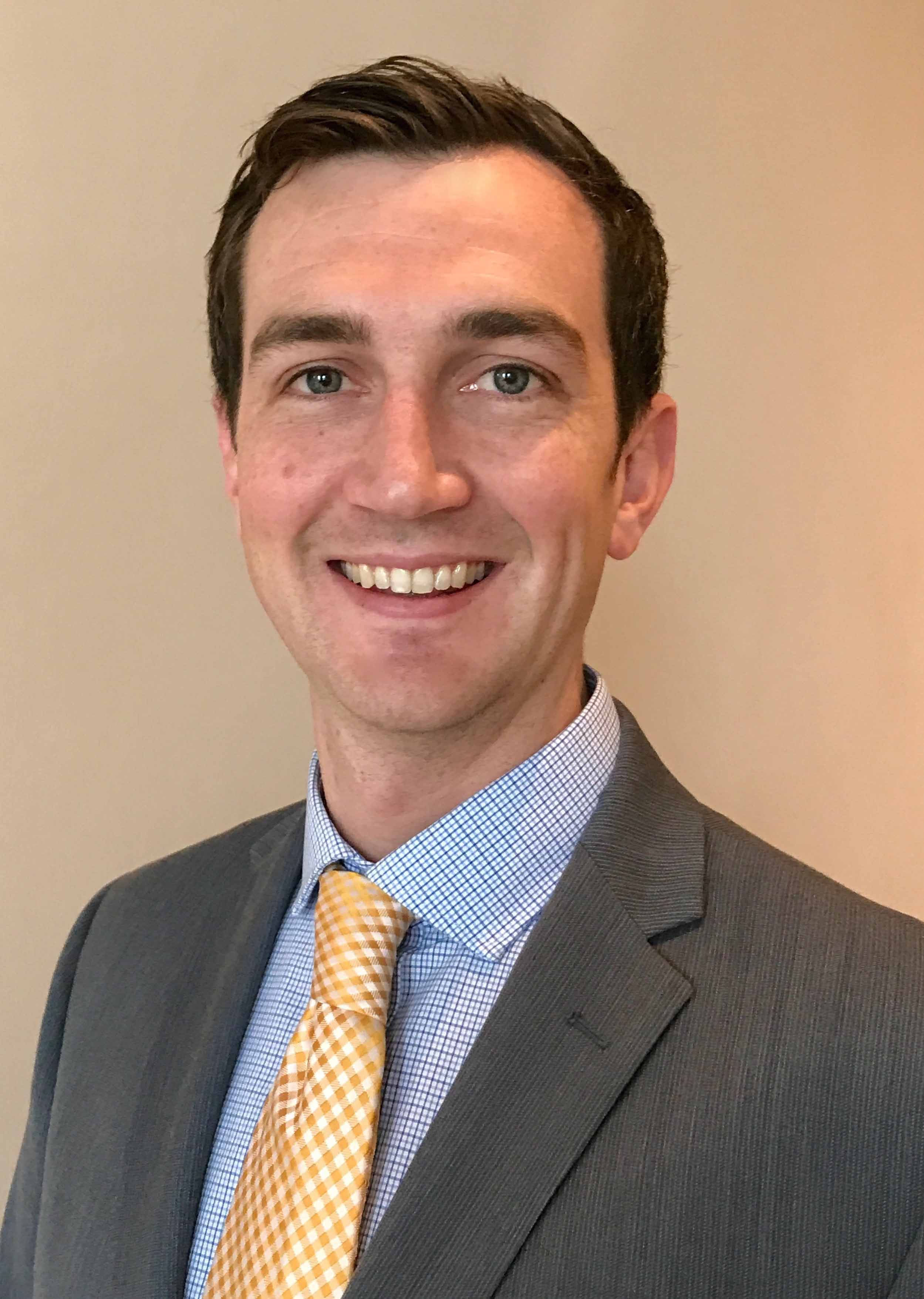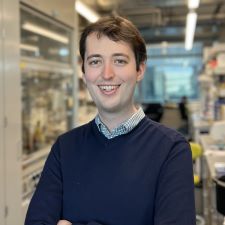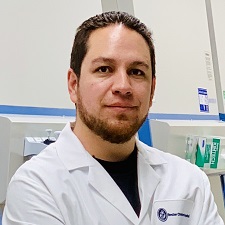James J. Morrow, MD, PhD

Osteosarcoma is the most common bone tumor and primarily affects children and adolescents. Unfortunately, treatment approaches and outcomes for osteosarcoma patients have not significantly improved for 40 years. Dr. Morrow’s work is focused on understanding normal bone development and how this development goes awry, giving rise to osteosarcoma. He hopes this improved understanding will lead to new treatment approaches for pediatric osteosarcoma patients. Dr. Morrow received his MD and PhD from Case Western Reserve University School of Medicine, Cleveland and his BS from The Pennsylvania State University, State College.
Geoffrey A. Smith, MD, PhD

In the past decade, new therapies that train the immune system to recognize and kill tumor cells have revolutionized cancer care. Unfortunately, immunotherapies have been largely ineffective in pediatric solid tumors, including osteosarcoma, the most common bone cancer. Dr. Smith aims to understand why immunotherapies have failed by studying a mouse model closely resembling human osteosarcoma. Importantly, these mice have an intact immune system, unlike models that transplant human tumors into mice. By combining complex modeling with single cell and spatial techniques, Dr. Smith hopes to uncover barriers to immune control of osteosarcoma and identify potential therapeutic approaches. Based on these findings, he plans to test novel immunotherapies in the mouse model to prepare for the next generation of osteosarcoma human clinical trials. Dr. Smith received his MD and PhD from the University of California, San Francisco and his BA from Harvard College, Cambridge.
Jeremy A. Owen, PhD

Chromatin remodelers are complex protein machines responsible for packaging DNA and regulating gene expression. Their dysfunction is strongly implicated in cancer. For example, certain types of sarcoma and ovarian cancer are driven by mutations in a chromatin remodeler called BAF. Combining experiments with theoretical work, Dr. Owen’s research aims to understand how remodelers recognize their target sites in the cell’s nucleus. By expanding our understanding of chromatin remodeling, the findings of this research will provide the groundwork for more effective cancer treatments—suggesting how drugs might target chromatin remodelers—as well as enhance our understanding of how existing drugs that target remodeler-adjacent mechanisms might work.
A central aim of this project is the development of new, quantitative models to explain the behavior of chromatin remodelers seen in experiments. Dr. Owen will achieve this by successive rounds of passing between theory and experiments repeatedly—measuring, modeling, then measuring again. For comparison to experiments, model predictions will be extracted computationally (e.g., numerically solving ODEs, or by exact stochastic simulation using Gillespie’s algorithm) or analytically (e.g., by the King-Altman procedure, and variants), as appropriate.
Benjamin A. Nacev, MD, PhD
Sarcomas are a family of tumors for which there are few targeted treatments and outcomes are poor once the cancer has metastasized. Many sarcomas harbor recurrent mutations in proteins, known as epigenetic regulators, that control which genes are expressed and when. Among the regulators most frequently impacted is ATRX, which condenses regions of DNA into tightly packaged chromatin that cannot be accessed for transcription, effectively “silencing” these genes. The effect of ATRX loss in sarcomas is poorly understood, however, and treatments that leverage ATRX deficiency are lacking. Using patient-derived sarcoma cell lines and tumor samples, Dr. Nacev aims to understand epigenetic dysregulation in ATRX-deficient sarcomas, to determine how this affects antitumor immunity, and to identify new therapeutic vulnerabilities.
Esteban A. Orellana Vinueza, PhD

Dr. Orellana Vinueza is investigating whether changes that modify the shape, stability and function of transfer RNAs (tRNAs) play a role in the development of cancer. The tRNA molecules are involved in the process that translates messenger RNA into a protein. Dr. Orellana Vinueza focuses on a tRNA methyltransferase complex that malfunctions in glioblastoma and liposarcoma. He will assess how alterations in the activity of this enzyme affect global patterns of methylation in normal and human cancer cells. Methylation is the process that controls the timing and amount of proteins that are produced in cells. Understanding how this process breaks down may help decipher the mechanisms that drive cancer and guide the development of new treatments.
